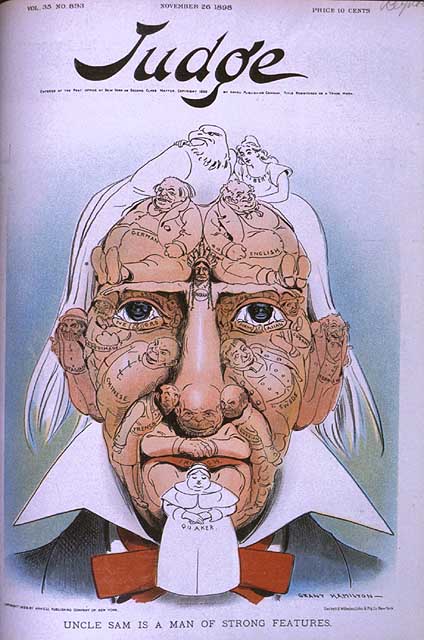Questions to "Bread Givers"
1. Why do you think Yezierska tilted her novel that way?
2. What did shock or surprise you during reading the novel?
3. Have you noticed any cultural aspects that are new to you or are not part of the American culture?
4. Do you think that Smolinsky's family adopted to American norms?
5. What do you think about the way Yezierska portrayed the status of an immigrant woman?

1. I think the title Bread Givers refers to the way the sister's gave their wages up to their father, the word bread being used as slang for money.
ReplyDelete2. The behaviors of the men and the women's acceptance of their behavior was something that surprised me while reading the novel.
3. Any of the Jewish traditions or customs, as well as Yiddish terms, were all new to me.
4. Any American "norms" that the Smolinsky's could have adopted are most noticeable with Sara's free spiritedness and Mashah's deep interest in fashion.
5. I think Yezierska portrayed immigrant women to look similar to slaves. They work for money to spend on their husbands, are sold into marriages set to benefit the fathers, and are always put second to men.
1) I believe that Yezierska tilted her novel this way because much of the plot of the novel came from her own experiences. I personally love how the novel turned out, and I feel in every way that it is realistic, and inspirational.
ReplyDelete2) One of the factors in the novel that surprised me the most, was how much I could actually relate to the novel. For me, reading about Sara Smolinsky was like reading about the dream that I always dreamed of, except for me it was always just going to be a dream. I can relate to my own life in so many ways to the life of Sara's, except Sara did the daring choices that I don't feel like I would have the guts to do. For instance, in the novel Sara ran away from home, to escape her tyrant of a dad, and simply because that was what she had to do, in order to survive. She perseveres even with everyone looking down on her at first, and eventually even becomes successful and happy. This is the life she would've never had if she'd stayed on Hester Street, living in hell with her family.
3) I did notice some cultural aspects that were new to me. The most notable one would be the importance of religion for some people. I had always known that religion was extremely significant to many, but I had never actually read a single story about one specific scenario where someone is so overly obsessed with their religious ideas, that they become so blind to anything and everything around them. Thus, reading about Sara's dad was realistic, yet frustrating. Throughout the entirety of the novel, I felt like he loved his beliefs, more than he ever loved his family. Not even his wife, who faithfully stood by him through dirt poor conditions.